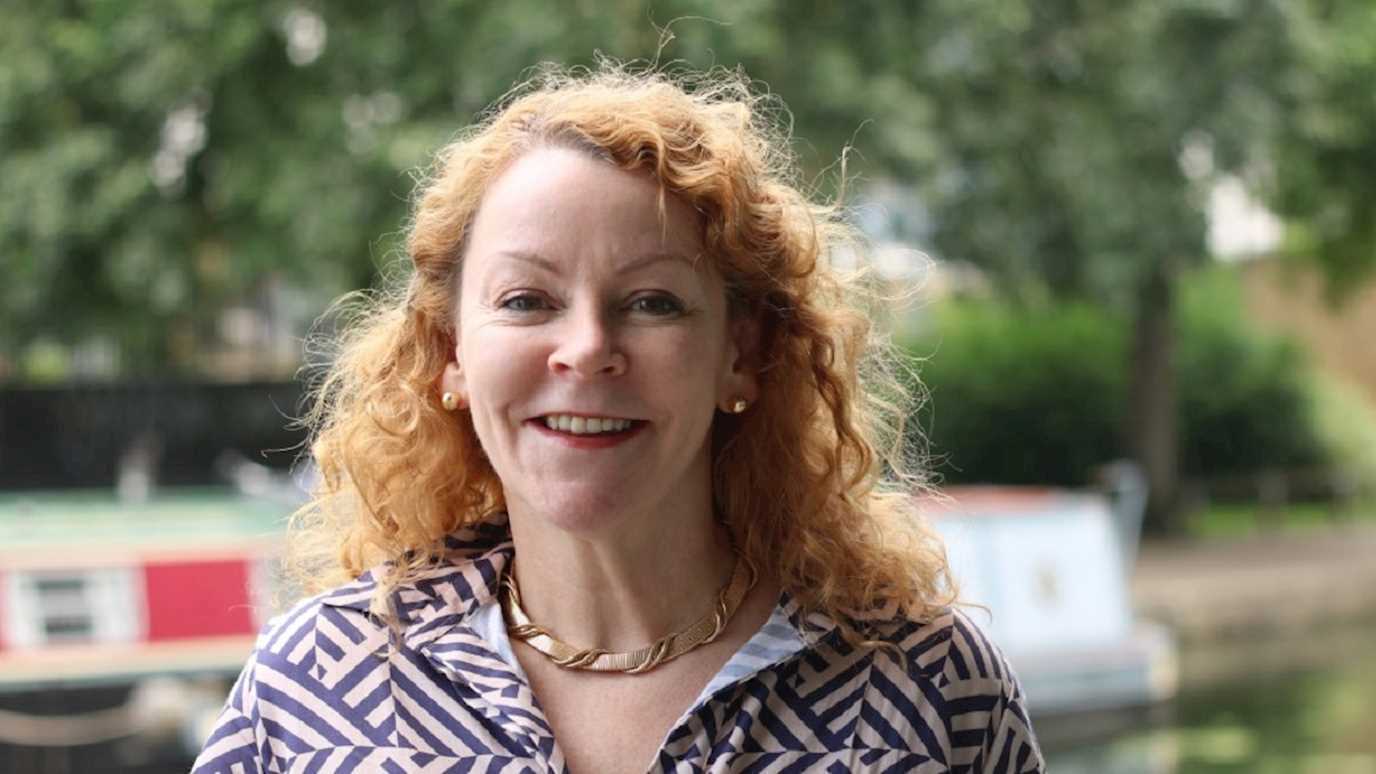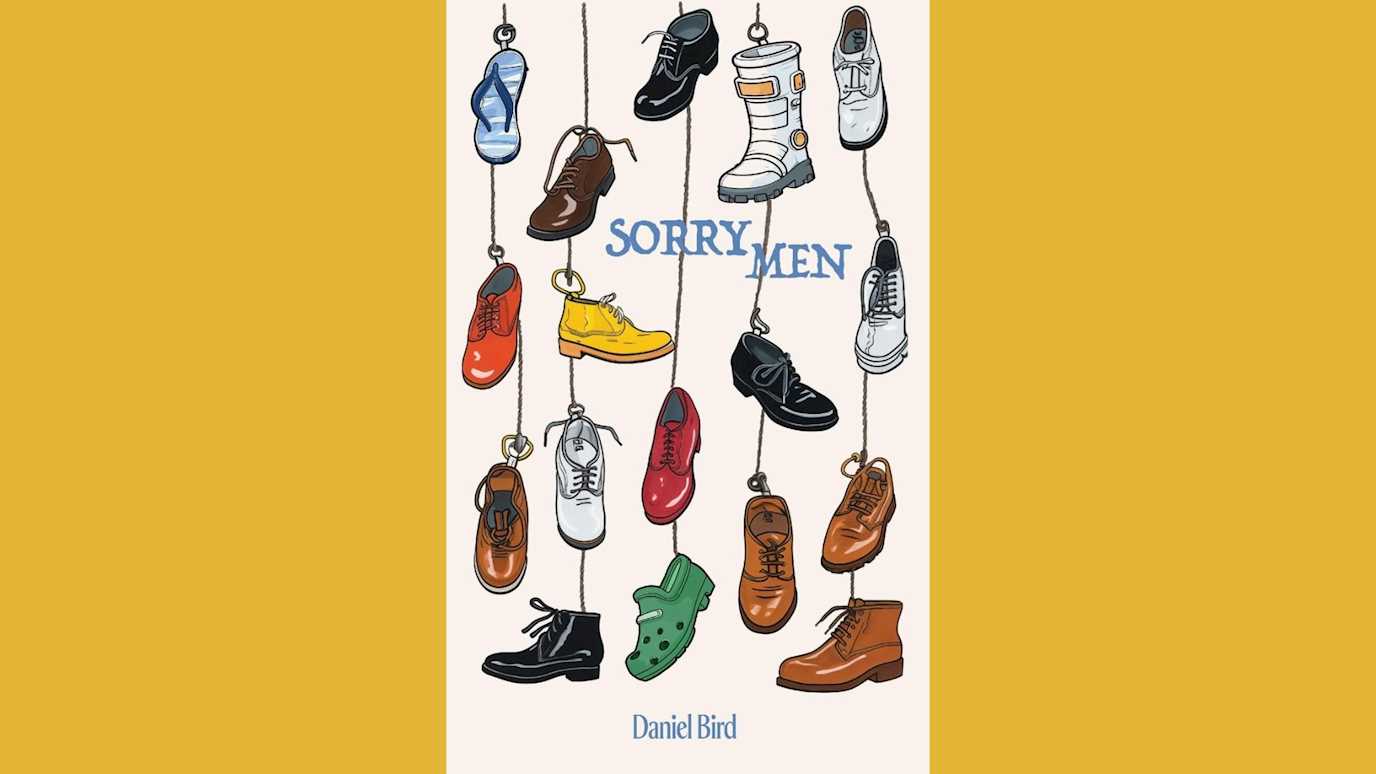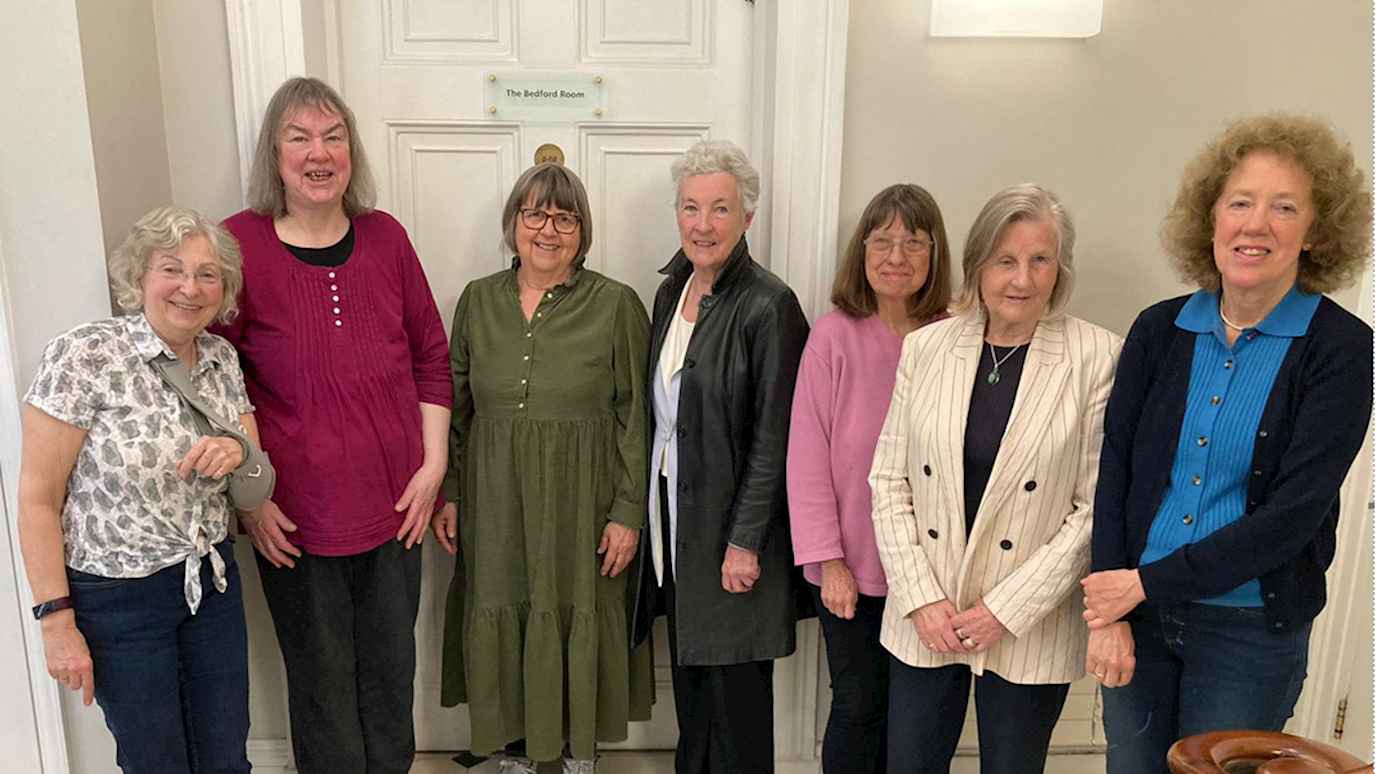Alumna and Chief Executive of Business in the Community, Amanda Mackenzie OBE, puts purpose front and centre in her work. She speaks to alumna and journalist, Jess Jonzen, about her work at Business in the Community (BITC), Project Everyone and her time as a student at Bedford College.

Amanda Mackenzie is a woman on a mission. Multiple missions, in fact. As the Chief Executive of Business in the Community (BITC) – The Prince’s Responsible Business Network – she is tasked by Prince Charles himself with galvanising companies to give back to the most deprived communities in the UK.
Simultaneously, Mackenzie is also the executive advisor of Project Everyone. The brainchild of director and Comic Relief co-founder Richard Curtis, its aim is to bring the Global Goals – the United Nations’ 2030 sustainable development goals on poverty and climate change – international recognition. When the goals were launched in September 2015, Project Everyone succeeded in getting the message of the Global Goals to 3.5 billion people across the globe in just one week. "We had barely any budget and no more than c 20 people working on it at any one time. It was phenomenal. What we did have was incredible strength from communications channels and brands" says Mackenzie.
When it comes to delivering a message, Mackenzie is any self-respecting brand’s first port of call. With a CV which reads like the Who’s Who of great British businesses – BT, British Airways Air Miles, British Gas among them – Mackenzie was also Chief Marketing Officer of Aviva for eight years, brought in to lead the re-brand from Norwich Union in 2008. She even had to reassure the Bishop of Norwich that the city’s cathedral spire wouldn’t be lost from the company’s logo. She was awarded an OBE for her services to marketing in 2014.
But after eight years on the executive committee of a big FTSE company, Mackenzie found herself with an itch to scratch. "I just got a sort of public service bug and I really needed to do something that was more full time and didn’t know what that was." Her former boss, and very enlightened Aviva CEO Mark Wilson, suggested she find a secondment that worked strategically for the business. A former colleague and Co-founder of Project Everyone Gail Gallie put her name forward to Richard Curtis and her life took a new course.
Mackenzie’s work with BITC serves as an illuminating counterpoint to her work with Project Everyone.
"The Global Goals are a phenomenal thing… but they will only be achieved one act at a time. A lot of what Business in the Community does is very tangible, grass roots, on the ground delivery and active leadership. One job keeps me grounded and the other makes sure that we tackle these issues at a global level."
When Mackenzie arrived at Project Everyone, there were barely any resources but "what we did have was the genius of Richard Curtis, and his conviction that the Global Goals needed to be famous. Hope and determination genuinely conquered all. It all links back to purpose."
BITC was founded back in 1982 in the aftermath of Toxteth and Brixton Riots of the previous year. "It was basically business feeling like it needed to do something; feeling like it wasn’t trusted that there was a profound role that it should be playing to help society feel more cohesive’ says Mackenzie. It has a range of programmes, including rehabilitating ex-offenders, revitalising abandoned high streets, gender equality and the unintended consequences of the digital revolution to name just a few. Today, BITC has over half of the FTSE 100 as active members and reaches hundreds more through its campaigns, with over 350 business leaders taking active business roles driving its programmes.
‘Corporate responsibility’ is something of a loaded term, often derided as a box-ticking exercise companies will employ only half-heartedly. For the best business leaders that’s simply not good enough. A successful business today, she says, is "one with purpose at its heart, which is living it and making decisions against it. As that phrase goes: a principal is only a principal if it costs you something." Responsible business requires investment in the short term "but I powerfully believe you will create greater value in its broadest sense long term and you’ll have nurtured the environment and society" she says.
Business leaders need to shift how they define success. "Don’t define your business by asking ‘what’s the profit?’, define it by asking ‘what’s the purpose?’ then the profits will come," says Mackenzie. "Ask yourself if you have an Inclusion and Diversity policy; are you genuinely tackling social mobility; are you genuinely thinking about the workplace and how to achieve the best environment for your team. A lot of these issues are enlightened self-interest if you want to be cynical but they’re the right thing to do if you don’t."
Moreover, Business in the Community has helped its members to realise the potential for competitive advantage and creating long-term shared value through being a responsible business. "UniLever is a great example because they have the Sustainable Living Plan and they have proven that the majority of their growth is coming from their Brands with Purpose, so they have unequivocally proven that that is a good thing." According to research gathered through Unilever’s Make Purpose Pay study, the company’s sustainable living brands grew 50% faster than the rest of the business and delivered more than 60% of its growth in 2016.
Mackenzie has found that to get anyone to rally behind a cause, they have to feel invested in it. "You have to create a purpose which will inspire people and move people to get behind it. They have to say 'this is the problem we’d love to have your help to solve, this is what we want to happen'" she says. Mackenzie was on the Davies Review to address the gender imbalance on FTSE 100 companies and found that cultural change – from getting more women on to boards, to embracing responsible business – needs to be ‘lived’ to be successfully adopted. "You can always apply a quota, but people will apply it reluctantly and will judge it badly. If you impose anything on anyone, they will always resent it whereas if you create cultural change it will sustain and become part of business as usual" she says.
Through her work, Mackenzie comes up against startling statistics on a daily basis. She recently met with the Chief Executive of the Esme Fairbairn Foundation Caroline Mason who told her that the UK has only 80 harvests left "and in East Anglia just 40, because the land is so profoundly over-farmed. We’ve got to think to the end of these sentences, look at the causality and work backwards. Just because we can, it doesn’t mean we should." Rather than feeling gloomy, however, statistics like this ‘make me even more enthusiastic about not letting people off the hook’ she says.
"Let’s make decisions so that if our children were to inherit them, they would be proud of them."
Mackenzie read Psychology at Bedford College, and was studying there at the time of the merger with Royal Holloway. "I chose Bedford College because I really liked Brian Foss, who was Professor of Psychology at the time. I also loved Regents Park and I got to live in Hanover Lodge for two years which was amazing. Being a girl from Yorkshire, the idea of being in such a beautiful countrified place in the middle of London and my first address being Hanover Lodge, Regents Park, London, was just the coolest thing."
A keen musician and singer (she has a 1939 Steinway grand piano at home), the merger with Royal Holloway presented Mackenzie with the opportunity to study music as part of her degree. She studied Solo Performance with the well-loved Professor Rosamund ‘Corky’ McGuinness, who passed away in 2012 at the age of 82. When asked what Corky’s guidance meant for her, Mackenzie’s eyes fill with tears. "Oh, I really loved Corky. She was my mentor all the way up until she died and she was just so lovely and impressive. I came across the reference she wrote for me for my first job recently." Mackenzie spoke on behalf of all of Corky’s students at her memorial at Senate House. "I was hugely touched to be able to do that", she says. "Corky was a remarkable, brilliant inspiration and I was so fortunate to be able to spend time with her over the years."
Studying at Royal Holloway and Bedford College ‘inevitably’ helped Mackenzie find her own purpose, she says. "Of course it did, it couldn’t not. I think everyone wants to make a difference but I feel my purpose right now is to really ensure that business steps up and does its bit because I profoundly believe that if they do we will help society and tackle a lot of the inequality that exists. I think my purpose now is to help CEOs and their teams to do that." Business in Britain does some incredible things to help create healthy communities. Let’s be proud, determined and just the right side of unreasonable to seriously make a difference.
























